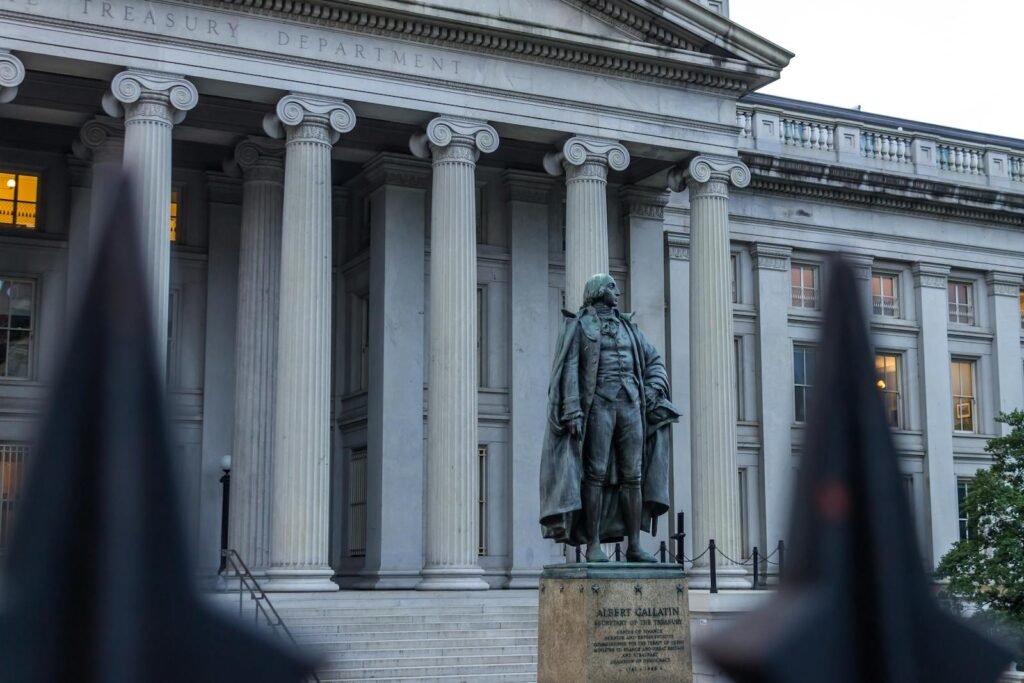
WASHINGTON — In a move described by authorities as the most extensive coordinated effort ever against cybercriminal networks in Southeast Asia, the United States and the United Kingdom unveiled significant sanctions on Tuesday aimed at organizations involved in large-scale online fraud operations that have resulted in losses exceeding $16 billion for victims.
The U.S. Department of the Treasury has placed sanctions on 146 individuals and entities linked to the Prince Group criminal empire based in Cambodia, and has also cut off a key financial services firm from the American banking system due to its involvement in laundering illicitly obtained funds.
Billions Lost to Sophisticated Scams
Treasury Secretary Scott Bessent emphasized the scale of the threat facing American citizens. Americans lost at least $10 billion to Southeast Asia-based scam operations in 2024 alone, representing a 66 percent increase from the previous year, according to government estimates.
“The rapid rise of transnational fraud has cost American citizens billions of dollars, with life savings wiped out in minutes,” Bessent said in a statement. “Treasury is taking action to protect Americans by cracking down on foreign scammers.”
The coordinated U.S.-U.K. action comes as losses to online investment scams have steadily climbed, totaling over $16.6 billion in recent years.
Prince Group: A Criminal Empire
At the heart of the crackdown is the Prince Group Transnational Criminal Organization, which is led by Chen Zhi, a 38-year-old Cambodian national and Chinese émigré who has established a business empire through various criminal activities, including investment fraud and human trafficking.
The Treasury Department has classified Prince Group as a transnational criminal organization, representing a major intensification of efforts to address cybercrime operations throughout Southeast Asia. This network functions through at least ten scam compounds in Cambodia, where workers are frequently held against their will.
The operations of Prince Group go beyond mere fraud. The organization faces accusations of involvement in sextortion, money laundering, corruption, illegal online gambling, and the trafficking and torture of enslaved individuals. Over the last decade, the group has managed illicit financial flows amounting to billions of dollars.
Human Trafficking and Modern Slavery
The criminal activities expose a troubling trend of human exploitation. Workers are often enticed with the promise of lucrative positions in customer service or tech support, only to discover they are confined in compounds and coerced into executing “pig butchering” scams—complex schemes where fraudsters cultivate relationships with victims over several months before persuading them to invest in fraudulent platforms.
Those held captive in these compounds endure inhumane treatment, which includes physical violence, isolation, restricted mobility, threats of sexual abuse, and the seizure of personal documents. Recent online reports have emerged detailing the horrific conditions faced by individuals at locations linked to Prince Group.
One particularly infamous operation, the Jin Bei Group luxury hotel and casino enterprise, has been associated with allegations of extortion, forced labor, and the murder of a 25-year-old Chinese national in 2023. During a 2022 FBI crackdown on a Chinese money laundering ring in New York, investigators uncovered 259 U.S. victims who collectively lost $18 million to scammers operating from Jin Bei Group facilities.
Huione Group Cut Off from U.S. Financial System
In a related move, the Treasury’s Financial Crimes Enforcement Network has implemented a rule to disconnect the Huione Group, a financial services conglomerate based in Cambodia, from the U.S. financial system. The company is reported to have laundered at least $4 billion in illicit funds between August 2021 and January 2025, according to FinCEN.
The laundered money includes at least $37 million from cyber thefts executed by North Korean state-sponsored actors, $36 million from virtual currency investment frauds, and $300 million from various other cyber scams.
Financial institutions that are covered are now barred from opening or maintaining correspondent accounts for Huione Group and are required to take measures to prevent any transactions involving the company.
International Coordination & Key Figures Targeted
The U.K.’s Foreign, Commonwealth, and Development Office took complementary action, imposing sanctions on Prince Holding Group, Chen Zhi, and his key associates. The bilateral effort was accompanied by the unsealing of a criminal indictment against Chen Zhi in the U.S. District Court for the Eastern District of New York.
The action resulted from close coordination between the FBI, the U.S. Attorney’s Office for the Eastern District of New York, and U.K. authorities.
Beyond Chen Zhi, Treasury targeted several of his close associates who manage various aspects of the criminal enterprise:
- Guy Chhay serves as one of two shareholders in Prince Bank alongside Chen Zhi
- Lei Bo oversaw construction of a scam compound where workers reportedly have been “beaten until they are barely alive”
- Zhu Zhongbiao is wanted by Chinese law enforcement for money laundering charges
- Sandy Zhou and Alan Yeo serve as financial assistants coordinating large wire transfers
- Thet Li acts as a de facto illicit finance CFO, involved in bulk cash smuggling
The sanctions also target Prince Group’s expansion into Palau, where the organization has worked with organized crime facilitators to lease an island and establish resort operations.
Due to the actions taken by the Treasury, all properties and interests in property belonging to the sanctioned individuals and entities located in the United States or under U.S. control are frozen. Additionally, any entities that are 50 percent or more owned by these blocked individuals are also automatically frozen.
Generally, U.S. persons and financial institutions are not allowed to engage in transactions with the sanctioned entities unless they have received authorization through a specific license.
The Treasury has highlighted that the primary aim of these sanctions is not to punish but to encourage positive changes in behavior, and there exists a procedure for requesting removal from the sanctions list.
This action builds on previous Treasury measures against the growing transnational scam threat, including designations of Burmese and Cambodian cyber scam facilitators in September 2025, Burmese Warlord Saw Chit Thu in May 2025, and Philippines-based computer infrastructure company Funnull Technology Inc. in May 2025.

















